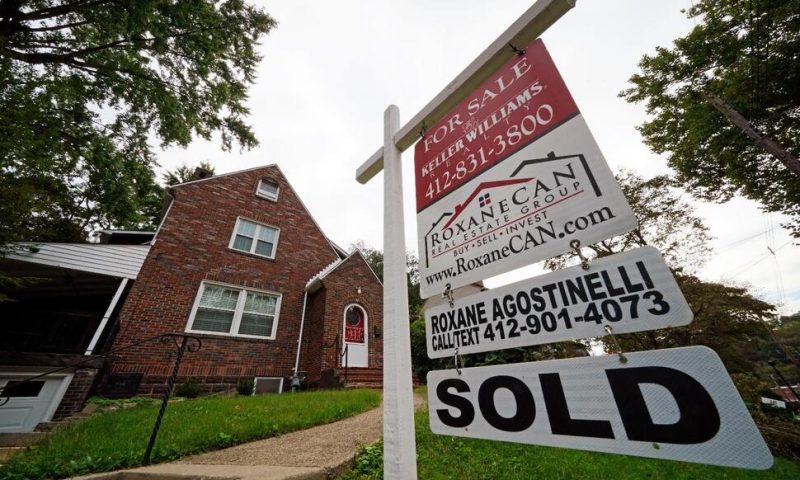Average long-term U.S. mortgage rates edged down slightly this week, though interest rates on the key 30-year home loan remain at decade-high levels.
WASHINGTON — Average long-term U.S. mortgage rates edged down slightly this week, though interest rates on the key 30-year home loan remain elevated.
Mortgage buyer Freddie Mac reported Thursday that the 30-year rate ticked down to 5.09% from 5.1% last week. By contrast, the average rate stood at 2.99% a year ago. Until about six weeks ago, rates hadn’t breached 5% in more than a decade.
The average rate on 15-year, fixed-rate mortgages, popular among those refinancing their homes, edged up to 4.32% from 4.31% last week.
Last month, the Federal Reserve intensified its fight against the worst inflation in 40 years by raising its benchmark interest rate by a half-percentage point and signaling more big rate hikes to come. The Fed’s move, its most aggressive since 2000, means higher costs for mortgages as well as credit cards, auto loans and other borrowing for individuals and businesses.
Higher borrowing rates appear to be slowing the housing market, a crucial sector of the economy. In April, sales of both existing homes and new homes showed signs of faltering, worsened by sharply higher home prices and a shrunken supply of available properties.
Homeownership has become an increasingly difficult aspiration, especially for first-time buyers. Besides staggering inflation, rising mortgage rates and soaring home prices, the supply of homes for sale continues to be scarce.
The U.S. remains stuck in the painful grip of high inflation, which has caused particularly severe hardships for lower-income households, many of them people of color. Though many U.S. workers have been receiving sizable pay raises, their wages in most cases haven’t kept pace with inflation. In April, consumer prices jumped 8.3% from a year earlier, just below the fastest such rise in four decades, set one month earlier.

